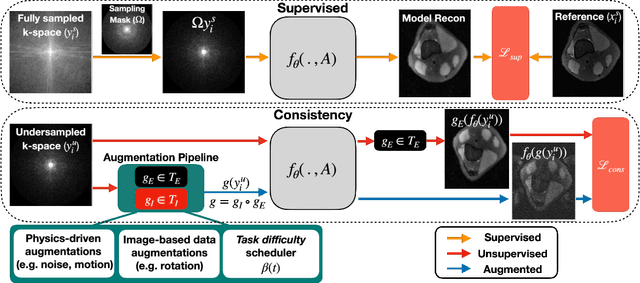VORTEX: Physics-Driven Data Augmentations for Consistency Training for Robust Accelerated MRI Reconstruction
Paper and Code
Nov 03, 2021



Deep neural networks have enabled improved image quality and fast inference times for various inverse problems, including accelerated magnetic resonance imaging (MRI) reconstruction. However, such models require large amounts of fully-sampled ground truth data, which are difficult to curate and are sensitive to distribution drifts. In this work, we propose applying physics-driven data augmentations for consistency training that leverage our domain knowledge of the forward MRI data acquisition process and MRI physics for improved data efficiency and robustness to clinically-relevant distribution drifts. Our approach, termed VORTEX (1) demonstrates strong improvements over supervised baselines with and without augmentation in robustness to signal-to-noise ratio change and motion corruption in data-limited regimes; (2) considerably outperforms state-of-the-art data augmentation techniques that are purely image-based on both in-distribution and out-of-distribution data; and (3) enables composing heterogeneous image-based and physics-driven augmentations.
 Add to Chrome
Add to Chrome Add to Firefox
Add to Firefox Add to Edge
Add to Edge